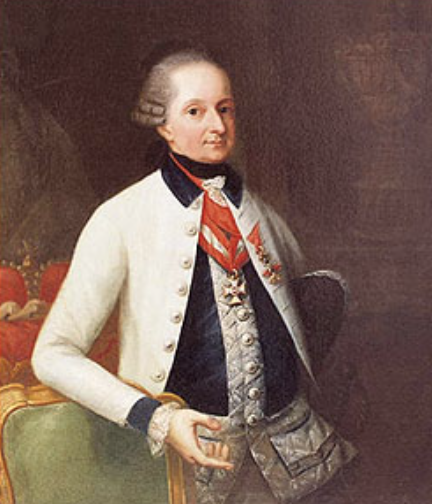Prince Esterházy and Haydn: A Symphonic Partnership
Prince Esterházy and His Patronage of Joseph Haydn: A Symphonic Partnership
In the rich tapestry of classical music history, the patronage of Prince Esterházy stands out as one of the most significant relationships between a noble patron and a composer. This unique partnership between Prince Nikolaus Esterházy and Joseph Haydn, often referred to as the "Father of the Symphony," played a crucial role in shaping the course of Western music. The support and opportunities provided by the Esterházy family enabled Haydn to reach unprecedented heights in his career, leading to the creation of some of his most celebrated works.
The Noble Patron: Prince Nikolaus Esterházy
Prince Nikolaus Esterházy (1714-1790), known as "The Magnificent" due to his lavish lifestyle and love for the arts, was a member of one of Hungary's most illustrious noble families. The Esterházy family had a long tradition of supporting music and the arts, and Nikolaus continued this legacy with great enthusiasm. He was a connoisseur of music, theater, and fine arts, transforming his court into a vibrant cultural hub.
Joseph Haydn: The Court Composer
Joseph Haydn (1732-1809) is a towering figure in classical music, credited with establishing the foundations of the symphony and string quartet. His innovative compositions and prolific output earned him international acclaim. Haydn’s relationship with the Esterházy family began in 1761 when he was appointed Vice-Kapellmeister and later promoted to Kapellmeister, a position he held for nearly three decades.
The Patronage
Prince Nikolaus Esterházy's patronage of Haydn was instrumental in providing the composer with the resources and environment necessary for his creative endeavors. The prince's estate, Esterháza, often referred to as the "Hungarian Versailles," was the epicenter of Haydn's musical activities. The estate boasted a magnificent opera house, a marionette theater, and numerous other venues where Haydn's compositions were regularly performed.
Prince Nikolaus's patronage extended beyond financial support. He provided Haydn with a stable position, a reliable income, and a stimulating environment filled with artistic activity. This stability allowed Haydn to focus on composing, experimenting, and perfecting his craft without the financial uncertainties that plagued many of his contemporaries.
One of the most notable aspects of Nikolaus's patronage was his personal interest in Haydn's work. The prince was not just a passive supporter but an active participant in the musical life of the court. He commissioned numerous works from Haydn, including symphonies, operas, and chamber music, and often discussed music with the composer, providing feedback and encouragement.
The Impact on Haydn's Career
The support from Prince Nikolaus Esterházy had a profound impact on Haydn's career. It was during his time at Esterháza that Haydn composed many of his most famous works, including the "Paris Symphonies" and "London Symphonies." The prince's patronage also enabled Haydn to experiment with new forms and ideas, leading to significant developments in his style and musical expression.
The close relationship between Haydn and Prince Nikolaus is perhaps best exemplified by the "Farewell Symphony" (Symphony No. 45). Composed in 1772, this symphony was a subtle protest by Haydn on behalf of his musicians, who were anxious to return to their families after an extended stay at Esterháza. The symphony ends with musicians leaving the stage one by one, a clever and poignant gesture that reportedly prompted the prince to grant his musicians leave.
The Legacy
The partnership between Prince Nikolaus Esterházy and Joseph Haydn is a shining example of how enlightened patronage can nurture and elevate artistic talent. Nikolaus's commitment to supporting Haydn not only provided the composer with the means to create but also enriched the cultural fabric of the Esterházy court.
The legacy of this patronage is evident in the enduring popularity and influence of Haydn's music. The works composed during his time at Esterháza continue to be celebrated for their innovation, elegance, and emotional depth. Prince Nikolaus's support enabled Haydn to become one of the most important figures in classical music, leaving an indelible mark on the art form.
Today, as we enjoy Haydn's symphonies, string quartets, and operas, we are reminded of the vital role that patronage plays in the arts. The collaboration between Prince Nikolaus Esterházy and Joseph Haydn remains a testament to the power of visionary support in fostering creative genius and shaping the course of cultural history.

